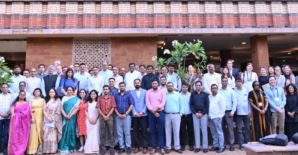Agriculture the backbone of Indian economy that engages more than 50 percent of the country’s workforce, is losing its preference as the most desired profession. Research shows that more than 40 percent of farmers dislike farming as a profession because of low profits, high risk, and lack of social status, yet they continue with it owing to a lack of opportunities outside agriculture.
A recent study on “Farmers' Preference for Farming: Evidence from a Nationally Representative Farm Survey in India” identifies factors that underlie farmer’s reasons to move out of agriculture.
Farmers who express a preference for moving out of agriculture are mostly those with small landholdings, poor irrigation facilities, fewer productive assets including livestock, and follow a cereal-centric cropping pattern. They also have relatively lower access to credit, insurance, and information, and are weakly integrated with social networks such as self-help groups and farmers’ organizations. Within caste group, the dislike for farming moderates with larger landholdings.
If look in the past, over the year’s Indian agriculture faced the challenge of stagnation in arable land, rise in population with increase in demand, changing consumer preference and growing small land holder with an average size of 0.38 ha. According to the latest decennial population census 2011, for the first time in the last four decades, the absolute number of farmers in India fell by 9 million, from 127 million in 2001 to 119 million in 2011. However, a commensurate decline in the agricultural workforce did not occur. The share of agricultural workforce in the total employment declined extremely slowly from 74 percent in 1972-73 to 60 percent in 1993-94 and further to 52 percent in 2009-10.
The author’s highlights that lack of profitability, high risk, and lack of social status in farming and others in that order are few of reasons for moving out. About 67 percent disliked farming due to low profits, 18 percent due to high risk factors and remaining 15 percent based it on the low social status attached to the profession and other factors. Across the different farm land classes, low profitability remained the prominent denominator but it is relatively more pronounced among smaller farmers. Risk was directly in proportion with landholding sizes.
Study reveals that by comparing the net returns on the farms of potential quitters (those who don’t like farming as a profession) and willing stayers (those who like farming as a profession). It is as high as 25 percent in the medium (2.0-4.0 ha) farm class and 18 percent in small (1.0-2.0 ha) farm class. Importantly, the probability of quitting does not seem to be much influenced by social identity as the proportion of farmers disliking agriculture as a profession is almost similar across social classes.
The authors identifies number of pull and push factors underlying farmers’ decisions on agriculture. Pull factors mostly relate to the income opportunities outside agriculture for eg. access to non-farm business activities, higher education, income from labour/salaried jobs, while push factors are a reflection of the constrained livelihood opportunities in agriculture, forcing farmers to seek avenues outside agriculture for eg. lack of access to irrigation, farm credit, crop insurance, information on crop agronomy and modern technology. On the other way around access to irrigation and diversification of production structure towards high-value crops and livestock production make farming attractive to stay in agriculture.
These findings have two types of implications; one for the farm sector and the other for the nonfarm sector. The results point toward a tendency of possible decline in viability of agriculture as a profession. It was noted that farmers who practice integrated farming can be a signal for a greater policy emphasis for diversification toward these activities. Farmers need an improved availability of finances, inputs, information, and markets to benefit maximum from technological change and diversification. Since risk was identified as important reason for disliking farming, insurance agencies can target efforts to improve their outreach among smallholders.
Authors conclude that to improve viability of small-scale agriculture, investments and prioritization on climate smart agriculture interventions by the policymakers can be an important step towards improving the food security and rural livelihoods in addition to mitigating the climate impacts.
Read More
40 per cent Indian farmers do not prefer farming as profession




